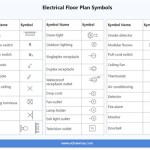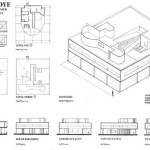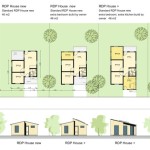Essential Aspects of New Build House Planning Permission
Embarking on the journey of building a new home entails a crucial step: obtaining planning permission. This comprehensive guide will delve into the intricacies of the planning process, illuminating the essential aspects you need to be aware of for a successful endeavor.
Types of Planning Permission
Depending on the nature of your project, different types of planning permission may be necessary:
- Full Planning Permission: Required for substantial alterations, extensions, or new build properties.
- Outline Planning Permission: Grants permission for the principle of development, leaving details for future applications.
- Permitted Development: Certain minor changes may fall under permitted development rights, not requiring formal approval.
The Planning Process
The planning process typically involves the following steps:
- Pre-Application: Engage with the local planning authority to discuss your plans and gather feedback.
- Submission of Application: Submit a detailed planning application, including plans, drawings, and supporting documents.
- Public Consultation: Your application will be made public, allowing neighbors and interested parties to provide comments.
- Decision: The planning authority will review your application and make a decision based on various factors.
Factors Considered
When assessing planning applications, the local planning authority will consider a range of factors, including:
- Policy Compliance: Adherence to local planning policies and regulations.
- Visual Impact: The impact on the surrounding landscape and neighboring properties.
- Environmental Considerations: Potential effects on wildlife, biodiversity, and sustainability.
- Highway Safety: Accessibility, traffic flow, and parking arrangements.
- Public Interests: Benefits and concerns raised by the public.
Conditions and Appeals
If planning permission is granted, it may come with conditions that need to be met. These can include design specifications, landscaping requirements, or time limits for completion. If your application is refused, you have the right to appeal the decision.
Professional Assistance
Navigating the planning process can be complex and time-consuming. Consider seeking professional assistance from an architect, surveyor, or planning consultant who can guide you through the process and optimize your chances of success.
Additional Considerations
Beyond the essential aspects outlined above, here are some additional considerations to keep in mind:
- Timeframe: The planning process can take several months, so plan accordingly.
- Site Assessment: Conduct a thorough site assessment to identify any potential issues.
- Community Engagement: Proactively engage with local residents and stakeholders to address any concerns.
- Financial Implications: Factor in the costs associated with the planning process, including application fees and professional fees.
- Ongoing Compliance: Ensure that your development complies with the granted planning permission throughout the construction phase.
Understanding the essentials of planning permission for new build houses is crucial for a smooth and successful project. By carefully navigating the process, you can increase your chances of securing the necessary approvals and realizing your dream home.

How To Get Planning Permission For A New Build House 2025 Edition Urbanist Architecture Small Company London

How To Get Planning Permission For A New Build House Design Me

Submitting Your Planning For Approval The Self Build Guide

Hph112 Getting Planning Permission For A Self Build With Phill Skill House Help

Planning Drawings For New Build Houses Drawing And Permission Consultants Architects In London

New Build Planning Conditions Morrish Solicitors

Securing Planning Permission For New Build Housing Granit
Planning Permission For A Self Build House In Essex D P

Self Build House Extension Planning Permission

Domestic Designs Detached New Build House








